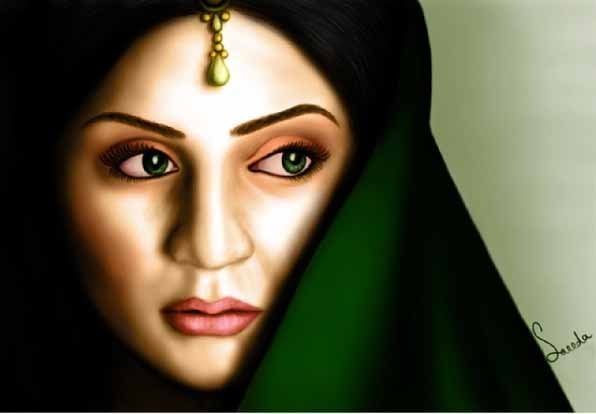By Asma Akhtar and Imrana Rasheed
Whenever history recalls feminine courage, women’s heroic contribution and their unchallenged determination, Banadi Rind appears as an epitome.
Banadi belongs to a Baloch tribe of warriors: the Rinds. According to Balochistan ke Qabahil by Manzoor Bukhari, Rind is a Persian word, which means “brave”. According to some legends, Rinds have their origin from the Arab tribe “Quresh” from the time of Ameer Hamza. They migrated to Balochistan from Aleppo after the battle of Imam Hussein with Yazid. However, this legend has been contested by contemporary historians who trace the origins of the Baloch from the Iranian plateau.
Banadi was the sister of Mir Chakar Khan Rind, the 15th-century chieftain of the Rind tribe and the head of the first-ever confederacy of Baloch tribes. After the 30-year-long civil war between the Rind and Lashar tribes, he moved to Multan where Mugal king Humayun gifted him the territory of Satagda in district Sahewal, Punjab.
When Sheer Shah Suri defeated Humayun in the battle of Kanooj (1539-40), these territories were confiscated from Chakar. Afterwards, he moved to Kohistan e Marri, Balochistan. In 1555, to repay the gratitude of Humayun, Chakar’s son, Mir Shadad, along with his 18 sons and 40,000 men, participated in the battle of Delhi in the support of Mughals against Suries. In this war to capture Delhi, Bandai played a memorable role that has become content for legends.
As rival armies exchanged swords in the battlefield, the Baloch army was soon overwhelmed by the enemy and they decided to retreat. Mir Bandai, however, considered it a disgrace to run away from the battlefield. She decided to face the Suri army on her own. This bravery caught the attention of the fleeing Baloch army and stirred their emotions.
This episode is immortalized in the Balochi epic poetry:
Jumps Banadi, the daughter of Shehak
Raising her hands adorned with bangles
And she struck them against her thighs
Smashing her nine lined-bangles.
Her heroism makes the men realize their strength and encourages them to move forward towards the battlefield with more vigor and enthusiasm. Soon after their flag of victory hovers over the blood of Suries.
The success in the conquest of Delhi would not be possible without Banadi’s exemplary courage. She does not only stir the zest of her companions but also participates in the war herself. Holding a sword in her hand and determination in her heart, she leads the war from the frontlines.
There comes a moment when she encounters Sheer Shah Suri himself. The man, intoxicated with pride, shouts at her:
“You, being a woman, keep away from me.”
The fearless woman roars back:
Women are ones who sit at home
Adorning themselves and combing their hair
Making love with their husbands.
Banadi thus proved the patriarchal mentality of the Baloch society wrong by showing that women were not a weaker or inferior gender. Her role does not only represent the valor of an individual woman, but also signifies the strength, bravery and contributions of Baloch women in general.



